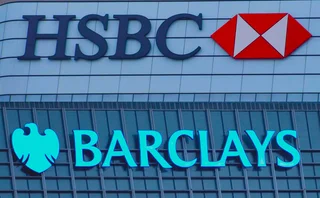
SG gives details of fraud, but questions remain
Société Générale has released more details of the rogue equity index trades that cost it €4.9 billion, alongside news that the bank was first alerted to the trades as far back as November 2007.
But, the bank acknowledged, the instruments in his first (real) portfolio had required margin payments, which the bank had made without becoming suspicious. When the bank finally uncovered the fraud, it had a nominal value of €50 billion - but the margin payments involved could have been as high as €5 billion.
One London equity derivatives trader commented: "I can't see how [the margin requirements] wouldn't have shown up. It definitely wouldn't have looked like part of his legitimate job - his risk limits would have been of the order of tens or hundreds of millions."
"It doesn't hang together," another commented. "The initial margin must have been very big - billions of euros. For this to get through without being noticed, at a sophisticated bank like SG, just doesn't compute." That the margins were paid without raising the alarm points to a major failure in the bank's back office, one exchange insider added.
The rogue trades might have been in progress since last year - reportedly the Eurex exchange alerted SG to a potential problem in November 2007, but the trader remained undiscovered. The unauthorised trades reportedly started as early as 2005.
See also: "He didn't want to tell the truth immediately"
Questions remain over SG rogue trader
€4.9 billion fraud at Société Générale
Only users who have a paid subscription or are part of a corporate subscription are able to print or copy content.
To access these options, along with all other subscription benefits, please contact info@risk.net or view our subscription options here: http://subscriptions.risk.net/subscribe
You are currently unable to print this content. Please contact info@risk.net to find out more.
You are currently unable to copy this content. Please contact info@risk.net to find out more.
Copyright Infopro Digital Limited. All rights reserved.
As outlined in our terms and conditions, https://www.infopro-digital.com/terms-and-conditions/subscriptions/ (point 2.4), printing is limited to a single copy.
If you would like to purchase additional rights please email info@risk.net
Copyright Infopro Digital Limited. All rights reserved.
You may share this content using our article tools. As outlined in our terms and conditions, https://www.infopro-digital.com/terms-and-conditions/subscriptions/ (clause 2.4), an Authorised User may only make one copy of the materials for their own personal use. You must also comply with the restrictions in clause 2.5.
If you would like to purchase additional rights please email info@risk.net
More on Regulation
Barr defends easing of Basel III endgame proposal
Fed’s top regulator says he will stay and finish the package, is comfortable with capital impact
Bank of England to review UK clearing rules
Broader collateral set and greater margin transparency could be adopted from Emir 3.0, but not active accounts requirement
The wisdom of Oz? Why Australia is phasing out AT1s
Analysts think Australian banks will transition smoothly, but other countries unlikely to follow
EU trade repository matching disrupted by Emir overhaul
Some say problem affecting derivatives reporting has been resolved, but others find it persists
Barclays and HSBC opt for FRTB internal models
However, UK pair unlikely to chase approval in time for Basel III go-live in January 2026
Foreign banks want level playing field in US Basel III redraft
IHCs say capital charges for op risk and inter-affiliate trades out of line with US-based peers
CFTC’s Mersinger wants new rules for vertical silos
Republican commissioner shares Democrats’ concerns about combined FCMs and clearing houses
Adapting FRTB strategies across Apac markets
As Apac banks face FRTB deadlines, MSCI explores the insights from early adopters that can help them align with requirements







